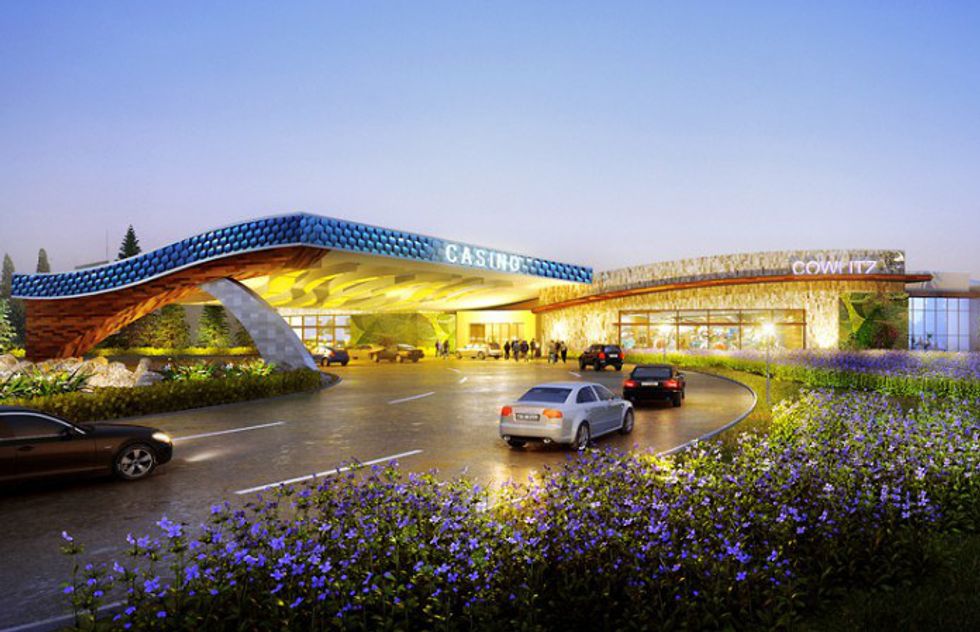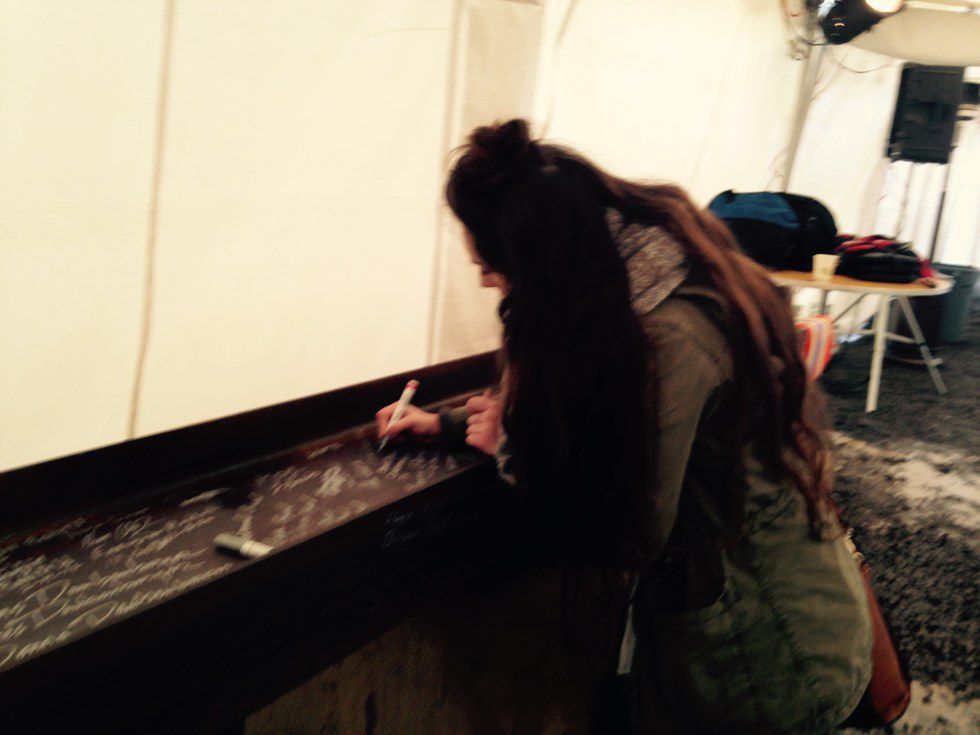Looking back on Native American history, each person could feel differently: you might empathize with them; maybe you felt it went down the way it was supposed to; or, like a lot of people, you could feel indifferent to the history that never negatively affected you or your family. I understand that it was inevitable with population growth and exploration that eventually others would venture out into the vast American land, rich in wildlife and timber. But what was shiny and new to our known invaders was sadly all the natives knew. Movies and television constantly depict Native Americans as savages, when in reality, they were pushed out of their home with guns and modern warfare.
It’s not so hard to put myself in their shoes -- Native American blood does run through my veins, after all. As a Cowlitz tribal member, my ancestors occupied approximately 2.4 million acres from Mt. St. Helens to Mt. Rainier, which was gradually taken away from us. In my lifetime, we have not only succeeded in becoming a federally recognized tribe, we have also finally been awarded our long-overdue reservation land. There are so many reasons why this is important to the Cowlitz tribe. It may not bring back Native American culture as a way of life, but it will certainly allow our people access to the many resources we need to thrive. As a community who once lived together, relying on each other to survive, this is a huge step in resurrecting lost traditions.
Yet, with every successful milestone, there has also been a stall. We have to make the most of our 152 acres, and as proven by other Washington tribes, a casino is the most effective way to utilize the land. Unsurprisingly, the local community was less than excited about this plan, halting development with appeals and delays for years. They held town meetings opposing the casino, developing concerns of traffic congestions and lack of housing, and accusing us of lacking the legal right to acquire the land. Once those were overruled, government officials took advantage of loopholes, zoning violations were adduced, and opinionated citizens continued to revolt -- all in the hopes that we would just give up. It was almost as though this land that we fought so hard to keep -- not obtain, but keep -- wasn’t really our land after all. However, it was nothing compared to what our ancestors experienced all those years ago, so what else was there left to do but fight on their behalf?
Unlike many other Indian casinos -- with the exception of Emerald Queen and Tulalip, north of Olympia -- our newly designated reservation property is in a highly lucrative and accessible location south of Portland, right off the freeway in La Center, Wash. Our tribal members took educated and calculated steps to get us here, and I commend them for how well they handled it. Elders secured the land years ago, it was eventually put into a trust, and luckily, a decade of disputes didn’t scare anyone away from what was meant to be our legacy. This casino will not only benefit our tribal needs, but serve as a substantial benefit to the local community, providing thousands of jobs during the construction phase, followed by just as many permanent jobs upon opening. It will introduce local entertainment beyond gambling, offering restaurants and shopping and acquiring tourism for other local businesses in the area.
Contrary to apparent popular belief, tribal members will not financially benefit individually from the casino; the agreement our tribe has made with the local community and the planning department extends way beyond the reservation. They will be making improvements in the freeway interchange (costing $30 million dollars), and with development of this size, many other utilities and contingencies were put in place that will positively impact the community.
The irony of this situation is that we finally have full access to our reservation land, but have to fight to use it. When we purchased this land, was the assumption that we would pitch our teepees and trade fur and other woven goods? Of course not. We will be living as modernized Native Americans, only trying to reclaim our heritage and using our resources to become self-sufficient again. We have fought so many battles to win this war, and I’ve seen how important this tribe is to its members long before they were building casinos. This has been much more than a long time coming.
I wish more than anything that everyone who opposes this vision could see how it brought our community together at the groundbreaking ceremony on Valentine’s Day, exactly 14 years since our tribe was granted federal recognition. The site was blessed, followed by tribal members drumming and singing the honor song to begin the ceremony. Community members signed a beam that is to be ceremonially dug into the earth as part of the casino’s construction, and we all had the opportunity to bring forward small items to be buried on the site, similar to how the Cowlitz used to bury tokens in the ground upon establishing a new village. We may be criticized for “incorrectly” preserving our heritage, but I sure think we’re doing a great job.
My tribe, and every other tribe across the country that has experienced the same hardship, deserve every good thing that has happened to them. To be clear, I know that being Native American doesn’t mean we’re above the law, but why is the only other option apparently to be six feet below it? As a younger generation Cowlitz member, I am proud to witness so much of my own history in my lifetime, but it doesn’t just affect me, or even my tribe. We’re hugely (and positively) affecting an entire community, and I think it’s something worth discussing.
“When the white man came and took the Cowlitz land and never gave us anything for it...they took our salmon, they took everything… When it comes to the casino, we’re just taking some of it back that’s rightfully ours. We’ve always talked about the day we have a reservation. We’ve dreamt of this day, we’ve fought for this day, we worked hard for this day. And now it has come, and I lived long enough to see happen.” --Roy Wilson, Cowlitz Elder






















